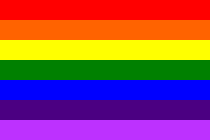 This morning, the Supreme Court of the United States ruled that bans on same-sex marriage violate the U.S. Constitution. As of today, it should be legal for same-sex couples in any state to apply for a marriage license. First, let’s talk about what this means from a legal perspective. A few benefits of marriage that previously were not guaranteed to same-sex couples include:
This morning, the Supreme Court of the United States ruled that bans on same-sex marriage violate the U.S. Constitution. As of today, it should be legal for same-sex couples in any state to apply for a marriage license. First, let’s talk about what this means from a legal perspective. A few benefits of marriage that previously were not guaranteed to same-sex couples include:
- Custody rights. Without the legal protection of marriage, same-sex couples ran the risk that the state may not recognize both members of the couple as legal guardians of their children; this meant that if one partner died, the other could be left with no rights to the children.
- Hospital visitation rights. Due to confidentiality laws surrounding healthcare procedures, often only immediate family are permitted to visit people who become incapacitated and so cannot communicate their own wishes about who visits them in the hospital. Under these circumstances, same-sex partners were not previously guaranteed visitation rights.
- Health insurance. Many healthcare family plans will only cover immediate family members; previously, same-sex partners were often not recognized as immediate family and so were not eligible for health insurance benefits through many employers.
But we all know that this isn’t just about legal rights. If it was, why would anyone oppose it? This is also about national identity. American conservatives are frightened because this symbolizes a divorce of the standards of the U.S. federal government from the Christian religion. In theory, it has always been the case that church and state were separate in the United States. The Founding Fathers, though most believed in the benefit of religion, recognized the diversity of the early colonists; though all of the colonies were predominantly Christian, they had come from a variety of Christian stripes in an era when those differences were very important.
The Puritans had originally fled England because they were persecuted for following the wrong strain of Christianity, according to the Church of England; which, in the days not long after Europe fought bloody wars over the differences between Protestantism and Catholicism, made them practically two different religions.
Others were Quakers, Masons, and other groups that, while Christian, were largely shunned and feared by the more dominant Christian factions. The 13 colonies were arguably as diverse in religious and national character as the States are today. And yet, somewhere along the line, America lost touch with the intent of separation of church and state.
Somewhere along the line, being a God-fearing Christian became part of being American in the eyes of many Americans. I would place this “somewhere” in the mid-20th century. It was in 1954, after all, that “under God” was added to the Pledge of Allegiance, which had previously simply read “one nation, indivisible.” It was in this mid-20th century, during the U.S.’s culture war with the Soviet Union, that the Soviets established atheism as a state religion and we tried our damnedest to establish Christianity as ours. Now, we seem to be rejecting that national identity – and there is a deep-seated fear in the minds of many Americans, arguably tracing back to the Cold War, that rejecting a Christian identity means embracing an atheist one.

It follows, in the minds of these people, that rejecting a Christian identity means that Christians will be endangered in the U.S., just as they were in the Soviet Union. Let’s not make them right. It’s easy to say “there is no risk of that – we would never persecute people for having beliefs different from our own.” And yet, the Christians who are upset about the legalization of gay marriage say the same thing. It is so easy to accidentally do.
It is not uncommon in Internet circles to hear Christians being slammed. I routinely need to police my own comment section – both for Christians being abusive towards non-Christians, and for non-Christians being abusive towards Christians. Hatred is a cycle. Let’s not continue it.
